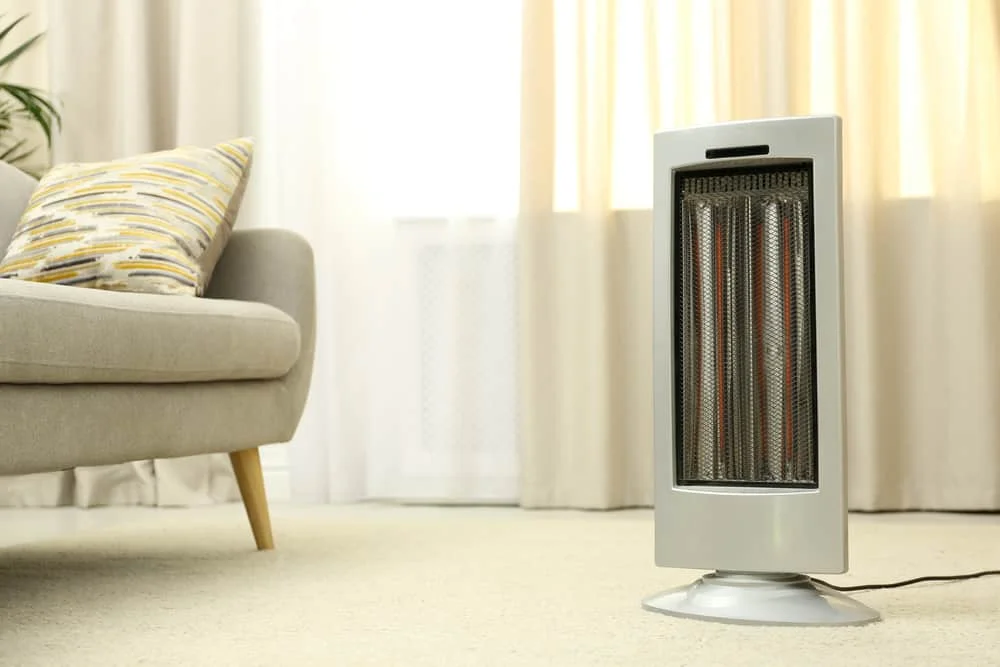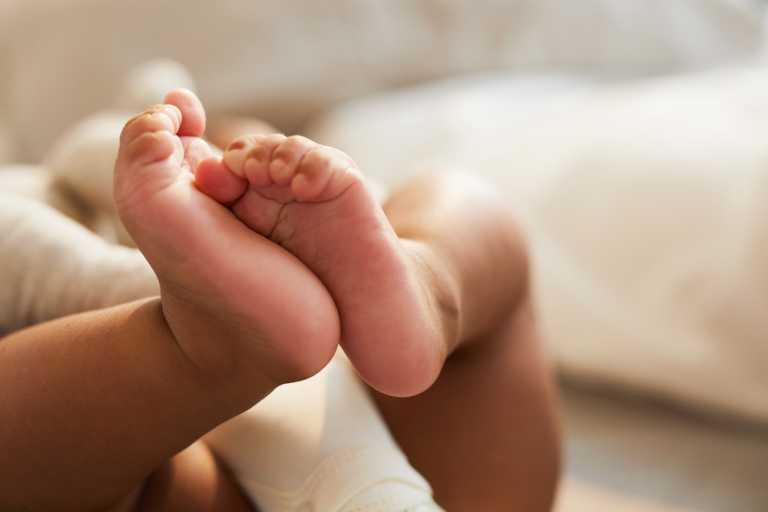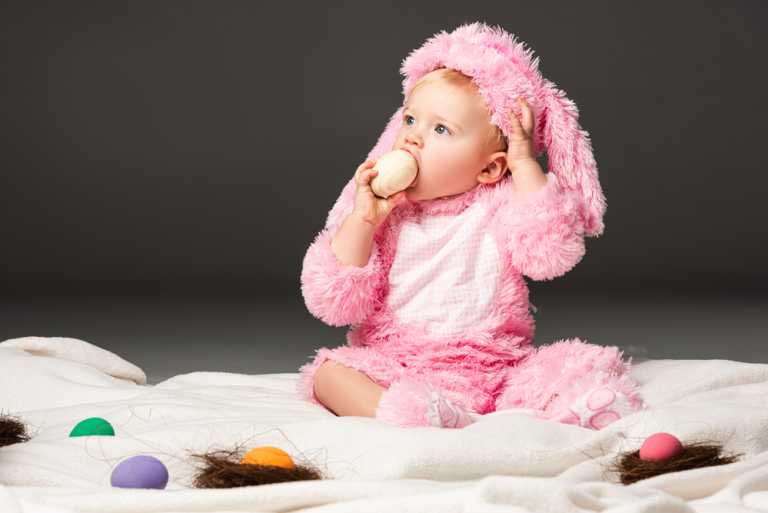As any good parent, you want to keep your baby safe and warm in Winter and might consider using a space heater. Unfortunately, Space Heaters are not safe! Babies cannot regulate their body temperature, so using a heater in their room can be more dangerous than you think.
Allowing a baby to overheat can be very serious for their health and, in extreme cases, can contribute to the risk of Sudden Infant Death. Space heaters can also cause fires and can cause surface burns to small children.
The below article discusses why you should avoid using a space heater and what other safe alternatives are available.
What is the risk of using a spaceheater in my baby’s room?
Overheating and SIDS
The risk of sudden infant death (SIDS) can increase if the room your baby sleeps in is too hot. Using a heater in your baby’s room increases the temperature in the room and causes your baby to overheat.
Monitoring the room’s temperature is the best way to keep a baby safe and lower the risk of SIDS.
The Lullaby Trust advises that the temperature of your baby’s bedroom should be between 16 °C to 20 °C. You can easily monitor the temperature with a room thermometer or by purchasing a baby room thermometer which will alert you if their room is too hot or cold.
Fire
A space heater can be dangerous if placed near flammable materials such as synthetic fabric, cotton, and linen. With a baby crawling around and exploring its surroundings, the heater may get knocked over and cause a fire.
Burns
Portable heaters often have outer surfaces that become hot when used or have grates and grills, which are very enticing to tiny fingers.
Stanford Medicine states that 20 percent of burns in children below four years come from contact burns. Room heaters are one of the most common reasons for product-related thermal burns.
How can I check if my baby is too hot or cold?

There are a few signs that will tell you whether your baby is too hot or cold, but the best way to check is to feel their chest or neck area by inserting your fingers under their clothes and feeling their skin.
- If your baby is hot, they will likely have flushed cheeks and you may see some sweat around their hairline. If they are too hot, adjust the room temperature or remove blankets or items of clothing. This is particularly important if you live in a hot country or are on holiday in a hot climate.
- If they are too cold you will be able to tell when you feel the skin on their chest or neck and you may notice that their hands look less pink.
What can I do if my home is too cold?
If you feel that the room temperature is too cold, use a reliable thermometer to check the temperature. If the room temperature your baby sleeps in is below the minimum 16 °C you can do the following:
- Add a layer of clothing to your baby if they feel cold, but do not add a hat if they are indoors because babies release heat through their heads to maintain a healthy body temperature.
- If necessary keep the central heating on at a low temperature (around 20 °C) or have the heating on for small periods of the night.
- Sleep in the same room as your baby. This will allow you to use your own body to gauge the temperature of the room and you can also keep a close eye on your baby.
Can I use blankets to cover my baby?
Allowing a baby to overheat can dramatically increase the risk of SIDS.
Here are some safe options you can use if you do not have central heating:
- Use light layers or light blankets rather than thick duvets. They make it harder for a baby to overheat, and you can take them off quickly if your baby gets too hot.
- Use baby sleeping bags or blankets but not both.
- Baby sleeping bags are worn by your baby and prevent it from suffocating as the baby can not kick the sleeping bag over its head. If you use a sleeping bag, make sure that you choose the correct tog level for your home’s temperature.
- Tuck your baby’s sheets or blankets beneath their arms and shoulders.
Do space heaters cause health issues?
As mentioned above, using space heaters around your baby can increase the risk of Sudden Infant Death (SIDS), as they can cause your baby to overheat. However, do they cause any other health issues?
A space heater heats the air in a room by causing moisture to evaporate, leaving the air in the room dry. This dry air can cause health issues for your baby that will cause them to feel uncomfortable. These health issues include:
- Dry skin – a room heater can dry out the moisture in your baby’s skin causing it to become flaky and itchy and uncomfortable for the baby.
- Dehydration – Severely overheating the room can cause your baby to lose fluids through sweating and therefore slowly cause dehydration and extreme thirst in your baby. This can cause serious health issues or death for your baby if this goes unnoticed.
- Dry Nasal Passages – Dry air can pull moisture from your baby’s delicate nasal passageways causing irritation and nosebleeds.
How can I make using a space heater safe?
If you have to use a space heater because your home is too cold, the safest way to use a heater is to use it to heat your baby’s room before they are put down to sleep. Then turn off the heater and remove it from the room before your baby goes to sleep.
You should also make sure you purchase a space heater from a reputable manufacturer and have it tested by an electrician before using it.
It is also a good idea to buy a heater designed specifically for use around children, and one that has an internal thermometer that will turn off the heater once the room has reached the desired temperature.
When using the space heater around your baby, take the following precautions:
- The heater is placed in an area where your baby can not reach it
- The heater is in a place where it can not be knocked over or it has a stand that prevents this from happening.
- Do not use extension leads to plug the heater in as this can cause fires. Instead, plug the heater directly into the electrical wall socket.
- Ensure that the heater is not directly aimed at your baby and instead is aimed away from them, which will allow the warm air to circulate in the room.
- Keep a window or door to the room with the heater on slightly open to allow the air to circulate and prevent the room from getting too hot.
- Remove any synthetic fabrics and combustible materials from the area around the heater.
- Dress your baby in light sleeping clothes and do not put a blanket on them. This will help prevent them from overheating.
- Regularly check on your baby and the temperature of the room. If the room is warm enough, consider turning off the heater for a short period until you check again.
Final Thoughts
If you are using a space heater around your baby, try to avoid going to sleep yourself while the heater is on in your baby’s room. This can be difficult if your home is freezing at night. However, this is the safest option as it allows you to regularly check on your baby, monitor their temperature, and turn off the heater once their room reaches optimal temperature.
An extra layer of clothing or an additional light blanket will keep your baby warm during the night and will less likely cause them to overheat. A cold baby is more likely to cry and alert you to their discomfort than an overheating baby, so if your baby gets too cold, they are likely to let you know about it.




